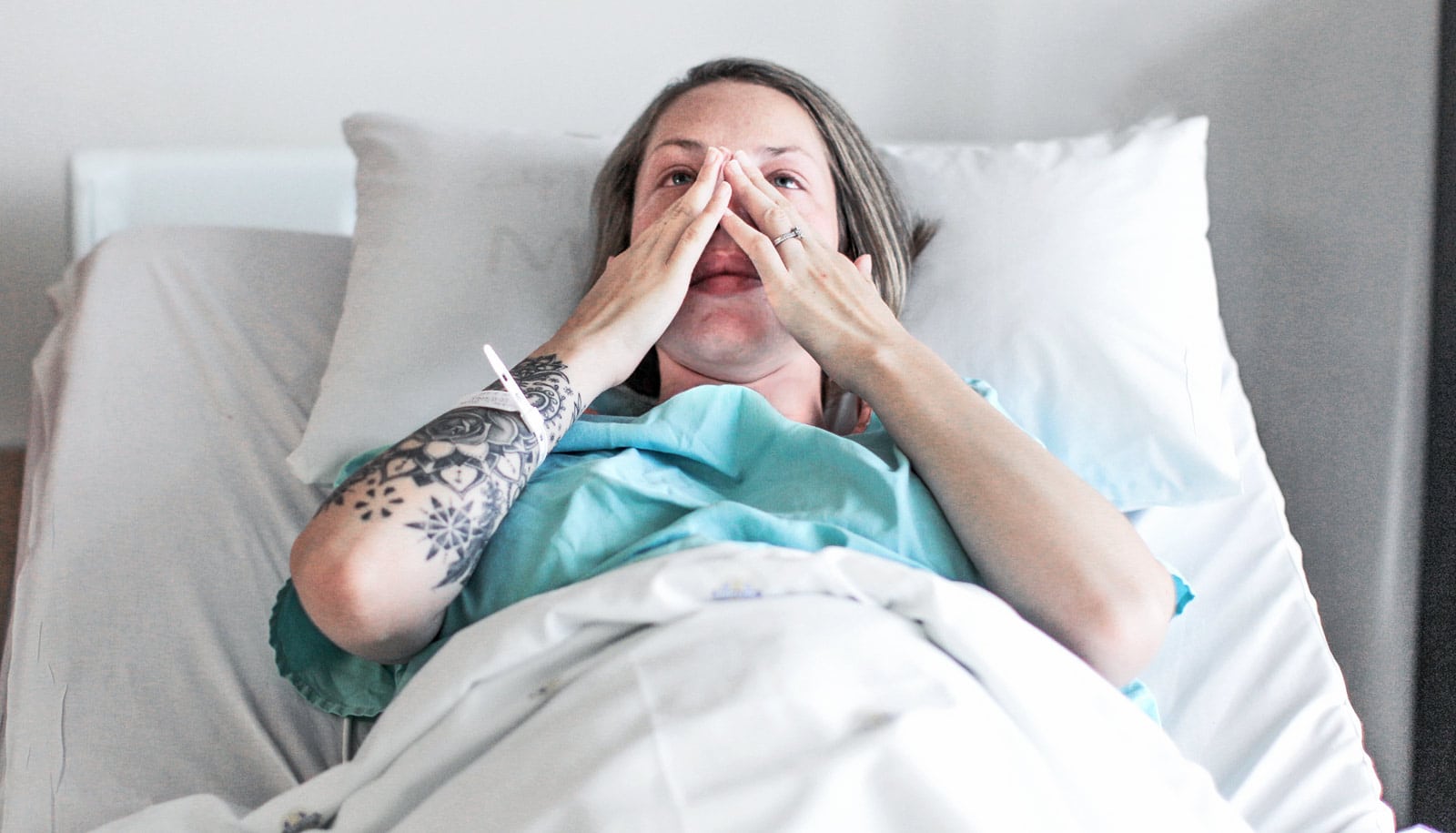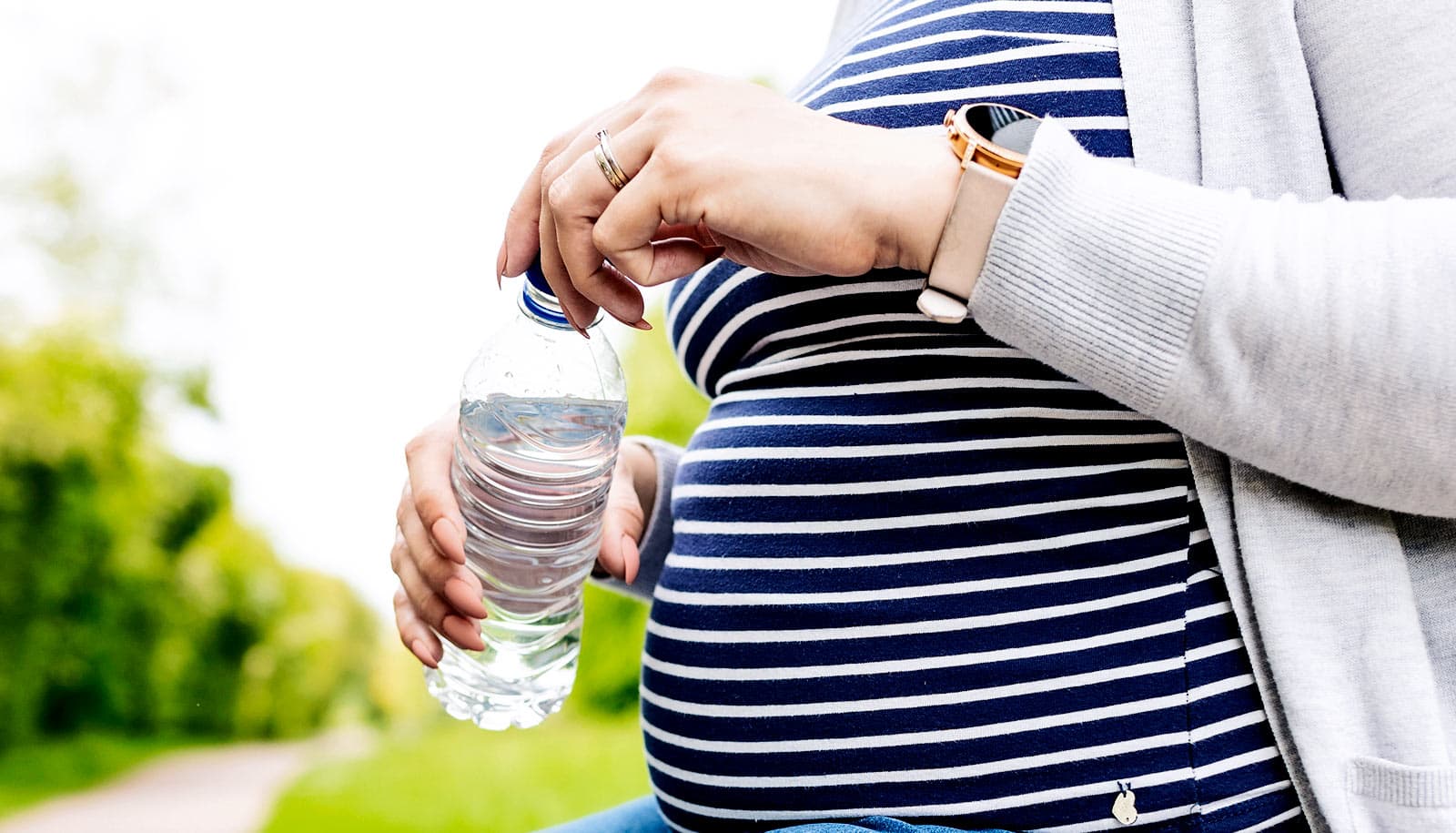Without psychosocial support during high-risk pregnancies, women struggle with their fears while feeling isolated and worried, research finds.
About 15% of pregnancies worldwide are high-risk, making premature delivery, low infant birthweight, and other poor outcomes more likely. In the United States, 10% of pregnant women require hospitalization because they have hyperemesis gravidarum, preeclampsia, kidney infections, gestational diabetes, or are at risk for imminent delivery, among other conditions.
Rutgers researchers say keeping anxiety and stress to a minimum during pregnancy is important but is especially critical for high-risk pregnancies where it is believed to be a factor in premature birth.
Mind tricks and minimal guidance
The researchers interviewed 16 women hospitalized during high-risk pregnancies and found that trying to manage their emotions by themselves added an additional burden to an already stressful experience. The in-depth interviews are designed to elicit rich interpersonal data. A sample of 16 is typical of the phenomenological research method they used.
The women stifled their emotional expression with their medical providers to enact being a good “mother” and to be a “good patient.”
The study’s participants included heterosexual women ages 21 to 42 from diverse racial and ethnic groups. The researchers analyzed how they tried to manage their emotions, what rationales they used, and how they interpreted advice from health care providers and family members.
“We noticed a common theme among the women we spoke to—they were trying to force themselves to feel certain emotions like ‘thinking positive’ while trying to perform mind tricks to get themselves there,” says Judith McCoyd, lead author of the study and associate professor at the Rutgers University School of Social Work. “More surprisingly, the women informed us that they did not receive explicit advice on how to cope, think positive, or calm down.”
What support would ease these high-risk pregnancies?
The researchers suggest that professional intervention using visualization, mindfulness, cognitive-behavioral work, and/or Acceptance Commitment Therapy, a type of psychotherapy that helps you accept difficulties, may all be useful interventions to try with this vulnerable group.
Aside from anxiety or depressive symptoms, the women experienced an inherent dilemma—needing to choose between two options and feeling that neither is good. This could include believing they must think positively to enhance fetal health despite their anxiety, sadness, and their fears that this could harm the fetus; feeling responsible for housework yet being told not to do it; and needing medical treatments they feared would harm their fetus.
The women also stifled their emotional expression with their medical providers to enact being a good “mother” and to be a “good patient.” To try to manage their emotions, the women expended tremendous energy, leaving themselves depleted and less able to cope.
The researchers say women considering pregnancy should think about what emotional support they might receive if they have a high-risk pregnancy. Women can speak with their obstetrician-gynecologist about receiving consistent medical and psychosocial care, and ask for a health navigator, perinatal social worker, or an integrated behavioral health specialist if they require hospitalization, McCoyd says.
The study appears in the journal Psychology of Women Quarterly.
Source: Rutgers University



